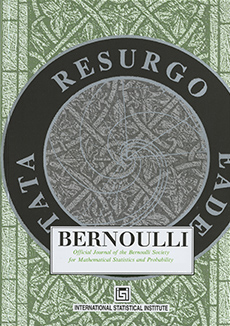Abstract
This paper introduces a new concept of stochastic dependence among many random variables which we call conditional neighborhood dependence (CND). Suppose that there are a set of random variables and a set of sigma algebras where both sets are indexed by the same set endowed with a neighborhood system. When the set of random variables satisfies CND, any two non-adjacent sets of random variables are conditionally independent given sigma algebras having indices in one of the two sets’ neighborhood. Random variables with CND include those with conditional dependency graphs and a class of Markov random fields with a global Markov property. The CND property is useful for modeling cross-sectional dependence governed by a complex, large network. This paper provides two main results. The first result is a stable central limit theorem for a sum of random variables with CND. The second result is a Donsker-type result of stable convergence of empirical processes indexed by a class of functions satisfying a certain bracketing entropy condition when the random variables satisfy CND.
Citation
Ji Hyung Lee. Kyungchul Song. "Stable limit theorems for empirical processes under conditional neighborhood dependence." Bernoulli 25 (2) 1189 - 1224, May 2019. https://doi.org/10.3150/17-BEJ1018
Information





